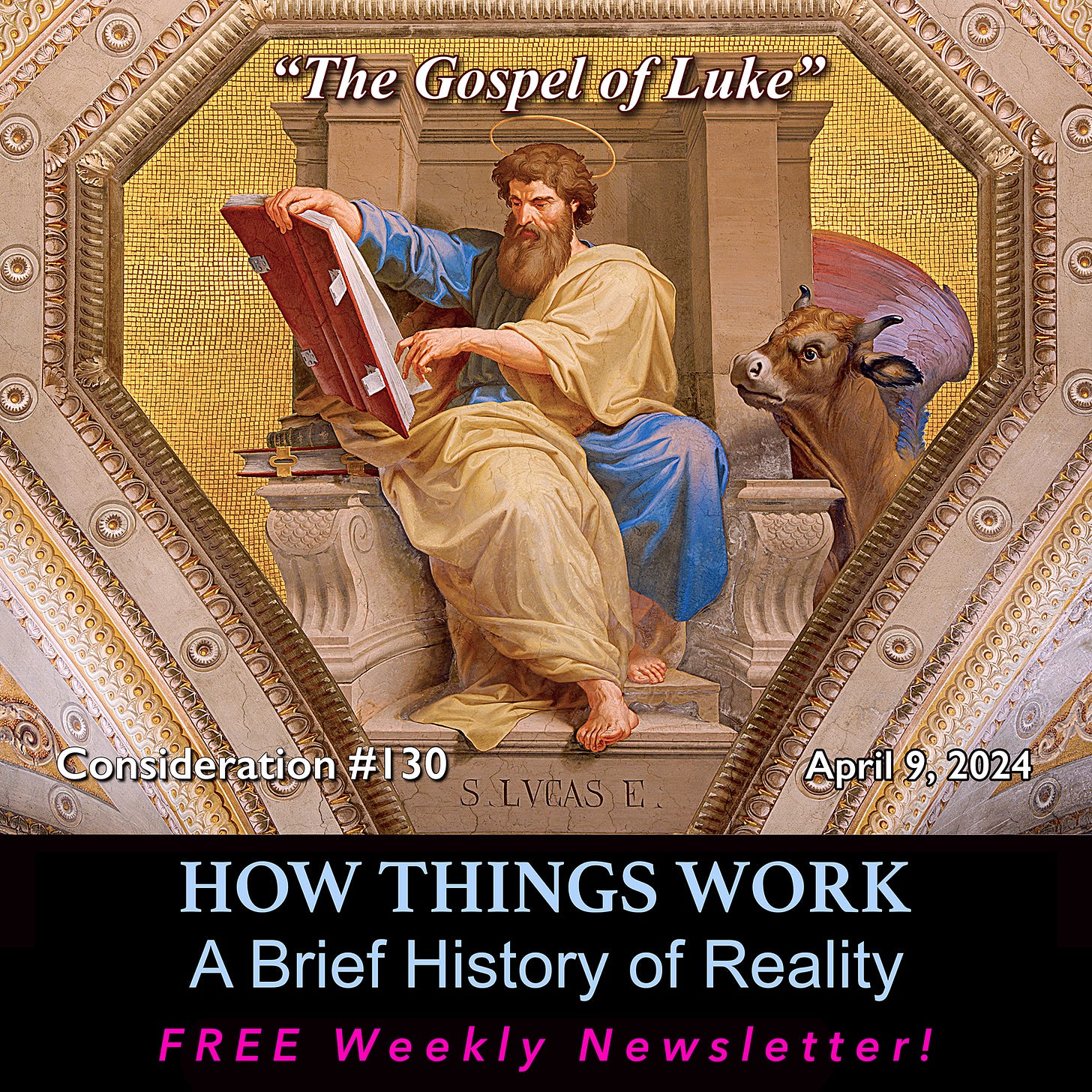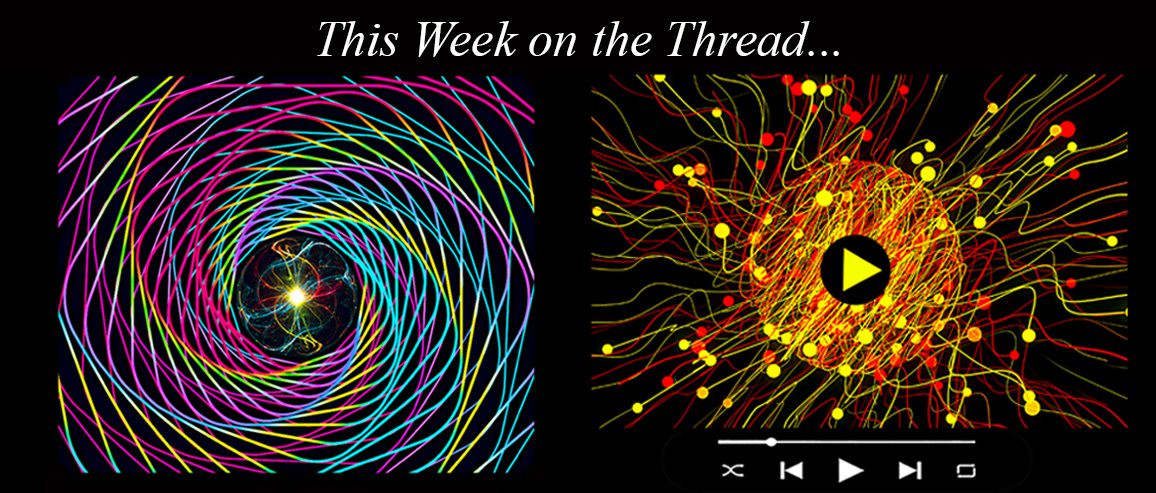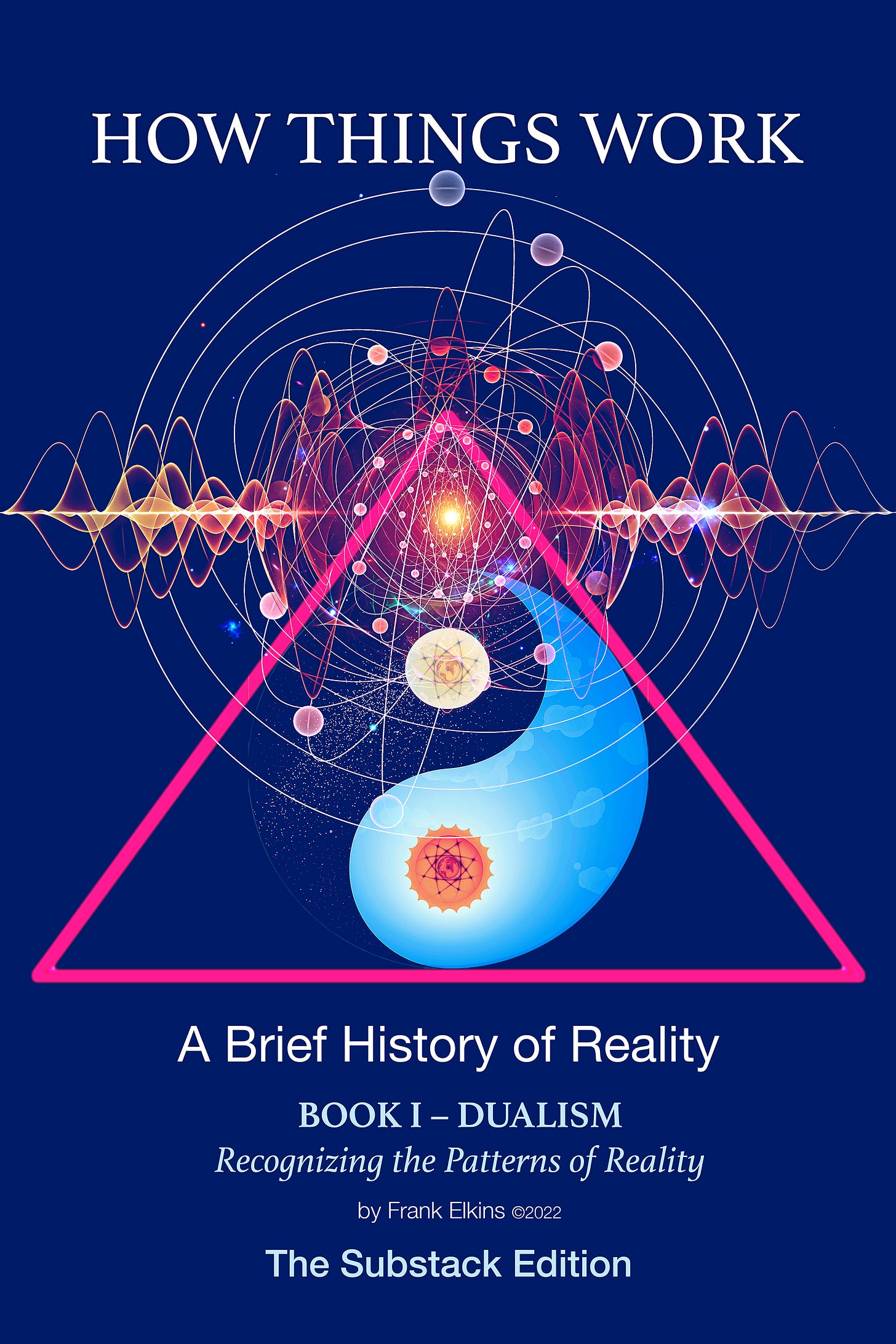"The Gospel According to Luke"
How Things Work – Consideration #130 (Book II Science & Religion)
Be A Part of the Conversation!
Tuesday April 9, 2024
“Jesus in Luke's gospel comes across differently, he's much more like a philosophic teacher, kind of like Socrates: he's reasoned, he's dispassionate, he's a critic sometimes of society but he's certainly concerned about the way his teachings bear on society. And in the end he dies very much like Socrates. The death of Jesus in Luke's gospel is more like a martyr's death, it's much calmer, he goes inexorably to the cross, knowing that it is what must happen.”
– Harold W. Attridge (The Gospel of Luke: A Novel for Gentiles)
PREFACE
Welcome Everybody!
Luke is thought to be a Gentile Christian, traditionally a disciple of Peter who later becomes Paul’s physician and traveling companion. The Gospel According to Luke was likely written in Rome, or Caesarea, between 80-85 C.E. Luke was known to be an accurate historian who carefully researched his subjects of interest.
“this Gospel has been painstakingly researched and put together by Luke…”
This Gospel is specifically researched and put together by Luke for “Theophilus,” which is an honorary title meaning “friend of God”. Therefore, this Gospel has been painstakingly researched and put together by Luke for someone leading the church in Rome. He begins with an explanation of the process before moving into the narrative. Luke writes this Gospel to assure Theophilus and the church that the accounts they had heard about Jesus, were in fact true.
Many have undertaken to draw up an account of the things that have been fulfilled among us, just as they were handed down to us by those who from the first were eyewitnesses and servants of the word. With this in mind, since I myself have carefully investigated everything from the beginning, I too decided to write an orderly account for you, most excellent Theophilus, so that you may know the certainty of the things you have been taught.
Luke 1:1-4
Luke’s gospel reflects a testimony of reassurance regarding his experience of who Jesus really was, and what he really did and said during his earthly ministry.
CONSIDERATION #130 – The Gospel According to Luke
Luke is immediately set apart from the other Gospels by his expanded and meticulous account of not only Jesus’ birth, but also the birth of John the Baptist. In Luke’s Gospel, the connection between John and Jesus is much more than spiritual, it is genetic. John and Jesus are cousins.
Luke begins with the revelation of John the Baptist’s holy birth, not Jesus’. Similar to Abraham, when Zechariah was told by an angel that he would bear a son, he questioned the angel because he and his wife were “too old” for such things. And like all who question God, there is a price to be paid for such a lack of faith.
Then an angel of the Lord appeared to him, standing at the right side of the altar of incense. When Zechariah saw him, he was startled and was gripped with fear. But the angel said to him: “Do not be afraid, Zechariah; your prayer has been heard. Your wife Elizabeth will bear you a son, and you are to call him John. He will be a joy and delight to you, and many will rejoice because of his birth, for he will be great in the sight of the Lord. He is never to take wine or other fermented drink, and he will be filled with the Holy Spirit even before he is born. He will bring back many of the people of Israel to the Lord their God. And he will go on before the Lord, in the spirit and power of Elijah, to turn the hearts of the parents to their children and the disobedient to the wisdom of the righteous – to make ready a people prepared for the Lord.”
Zechariah asked the angel, “How can I be sure of this? I am an old man and my wife is well along in years.”
The angel said to him, “I am Gabriel. I stand in the presence of God, and I have been sent to speak to you and to tell you this good news. And now you will be silent and not able to speak until the day this happens, because you did not believe my words, which will come true at their appointed time.”
Meanwhile, the people were waiting for Zechariah and wondering why he stayed so long in the temple. When he came out, he could not speak to them. They realized he had seen a vision in the temple, for he kept making signs to them but remained unable to speak.
Luke 1:11-22
Zechariah returns home to find his wife, Elizabeth, pregnant.
In the sixth month of Elizabeth’s pregnancy, God sends the angel Gabriel to a town in Galilee, called Nazareth, where he informs Mary about the coming birth of her son, Jesus. Luke gives a very detailed account of the event.
In the sixth month of Elizabeth’s pregnancy, God sent the angel Gabriel to Nazareth, a town in Galilee, to a virgin pledged to be married to a man named Joseph, a descendant of David. The virgin’s name was Mary. The angel went to her and said, “Greetings, you who are highly favored! The Lord is with you.”
Mary was greatly troubled at his words and wondered what kind of greeting this might be. But the angel said to her, “Do not be afraid, Mary; you have found favor with God. You will conceive and give birth to a son, and you are to call him Jesus. He will be great and will be called the Son of the Most High. The Lord God will give him the throne of his father David, and he will reign over Jacob’s descendants forever; his kingdom will never end.”
“How will this be,” Mary asked the angel, “since I am a virgin?”
The angel answered, “The Holy Spirit will come on you, and the power of the Most High will overshadow you. So the holy one to be born will be called the Son of God. Even Elizabeth your relative is going to have a child in her old age, and she who was said to be unable to conceive is in her sixth month. For no word from God will ever fail.”
“I am the Lord’s servant,” Mary answered. “May your word to me be fulfilled.” Then the angel left her.
Luke 1:26-38
Luke’s focus on John the Baptist exemplifies that Jesus is not just an accident, he is the final link in a divine plan. There are three pre-ordained “divine births” announced by angels recorded in the Bible. Sarah, Abraham’s wife, becomes pregnant long after menopause with Isaac; similarly, Elizabeth becomes pregnant with John well into old age; and Mary becomes pregnant with Jesus despite being a virgin. Isaac represents the beginning of Israel; John proclaims the arrival of the promised Messiah; and Jesus is the promised Messiah.
Therefore, Jesus was, is, and had always been a part of the plan; the preordained final link in God’s long chain of redemption.
POSTSCRIPT
Unlike others who had been encountered by God, Mary’s apprehension is not so much one of doubt, or lack of faith, as it is one of caution. She is a young virgin, and no one is likely to believe her story. However, after reassurance from Gabriel, she willfully accepts becoming the servant of God.
“This story reveals the necessity for a virgin birth as a means for the claim that God is the actual father of Jesus.”
In this story, Luke manages to connect Jesus to Abraham through Jacob and King David, as well as directly proclaiming that Jesus will be the Son of God. This story reveals the necessity for a virgin birth as a means for the claim that God is the actual father of Jesus. In Luke, Jesus is more than just a Messiah, he is divine. And yet very human as well.
John the Baptist is born before Jesus and his birth is also heralded with a miracle. The family is arguing over what to name the child, suggesting family members as namesakes. “John” is not a family name, and not under consideration. Zechariah is still mute from the curse of Gabriel, however, when he writes down the name “John,” as instructed by God, he is able to speak again.
Then they made signs to his father, to find out what he would like to name the child. He asked for a writing tablet, and to everyone’s astonishment he wrote, “His name is John.” Immediately his mouth was opened and his tongue set free, and he began to speak, praising God. All the neighbors were filled with awe, and throughout the hill country of Judea people were talking about all these things. Everyone who heard this wondered about it, asking, “What then is this child going to be?” For the Lord’s hand was with him…
And the child grew and became strong in spirit; and he lived in the wilderness until he appeared publicly to Israel.
Luke 1:62-80
Prior to either’s birth, Luke establishes a “prenatal” connection between Jesus and John the Baptist. In Luke’s gospel John and Jesus are spiritually and physically bound before conception; in a mission to transcend the kingdom of men into the Kingdom of God.
Next week, the only stories of Jesus as a child in the Biblical gospels...
Excerpt From This Week’s “Untangling the Knots of Reality Podcast…
• PODCAST #90: “Untangling Einstein’s Conclusion – Part 1”
“Why is Einstein considered to be the paradigm for ‘out of the box’ thinking?” “Why did Einstein pretend to ride on a beam of light?” “What makes the Special Theory of Relativity, special?” “How did Einstein determine that time and space were not constants?” “How does Einstein transcend Descartes’ search for certainty in science?” These are some of the knots we will attempt to untangle in this week’s podcast. That’s a lot of ‘out of the box’ thinking for one podcast! So, let’s get started…
• REALITY BY A THREAD: “Is it a Moose?” (Excerpt)
(“The main distinction between how a human being and a computer recognizes and understands the concept ‘cat’ has to do with experience vs. information. A child who is shown a series of cat photographs would become familiar in regard to recognizing what a cat looks like. A computer with multiple cat descriptions in its database would also become familiar in recognizing the physical attributes of a cat. However, once a child ‘experiences’ a ‘real’ cat, their understanding of ‘cat’ inherently changes. More than simply recognizing what a cat looks like, they have now experienced what a cat actually ‘is.’”)
•FREE PDF DOWNLOADS of Book IV: “The Cosmic Symphony – Overtones of String Theory” plus other Free Books, Discounts and Benefits. Also Gain Complete Access to all Previous Podcasts and Threads!
UPGRADE NOW!
The first link in the causal chain leading to Artificial Intelligence begins with Dualism…
“Our fascination with reality begins with our ability to distinguish between opposites. It is the source and foundation of all higher intelligence.” – Book I-Dualism (Substack Edition)
“The first glimpse of reality came through our direct experience with the incongruent patterns of existence… This duality served as the gateway for considerations far beyond the world of experience, into the world of understanding.” – Book I-Dualism (Substack Edition 340 pages)
The final link in the causal chain leading to Artificial Intelligence is the emergence of Quantum Consciousness…
“Quantum level thinking embraces the world of probability over physicality. It refocuses Awareness and Consciousness beyond the empirical world of Physical Reality to a totally abstract world of Quantum Possibility…” – BOOK V Quantum Consciousness
Book V considers the questions related to what Consciousness is, how it evolves through levels of Perception and Awareness, why each step in the process is important, where we are currently on the “Arch of Consciousness,” and how all of this connects to Artificial Intelligence. (166 pages)







